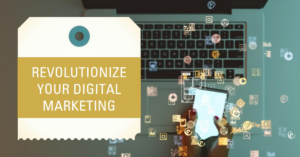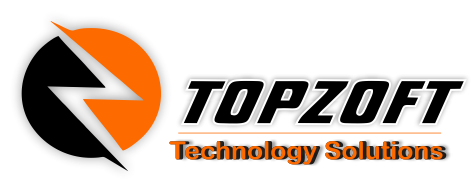Introduction:
Artificial Intelligence (AI) has emerged as a game-changer in the field of digital marketing, revolutionizing the way businesses attract, engage, and retain customers in the digital landscape. From personalized recommendations and predictive analytics to chatbots and natural language processing, AI-powered technologies are reshaping every aspect of the marketing journey, driving efficiency, effectiveness, and innovation. In this guide, we’ll explore the profound impact of Artificial Intelligence on digital marketing, uncovering key trends, applications, and opportunities for businesses to harness the full potential of AI and achieve sustainable growth in the digital age.

1. Data-Driven Insights and Predictive Analytics:
Artificial Intelligence enables marketers to leverage vast amounts of data to gain actionable insights and predictive analytics. AI algorithms analyze customer behavior, preferences, and patterns to identify trends, anticipate future actions, and optimize marketing strategies in real-time. By harnessing the power of AI-driven analytics, businesses can make informed decisions, optimize marketing campaigns, and drive better outcomes with greater precision and efficiency.
2. Personalized Customer Experiences:
AI-powered personalization enables marketers to deliver tailored, relevant experiences to individual customers at scale. By analyzing customer data and behavior in real-time, AI algorithms can customize content, offers, and recommendations to match each user’s preferences and interests. Whether through dynamic website content, personalized email campaigns, or targeted advertising, AI-driven personalization enhances engagement, conversion rates, and customer satisfaction.
3. Chatbots and Conversational Marketing:
Chatbots powered by Artificial Intelligence are transforming customer interactions and support experiences in digital marketing. AI chatbots use natural language processing (NLP) and machine learning algorithms to engage with users in real-time, answer questions, provide assistance, and guide them through the sales funnel. By automating routine tasks and delivering instant responses, chatbots enhance customer service, streamline operations, and drive conversions while freeing up human resources for more complex tasks.
4. Content Creation and Optimization:
Artificial Intelligence is revolutionizing content creation and optimization processes, enabling marketers to produce high-quality, relevant content at scale. AI-powered tools can generate personalized product descriptions, blog posts, and social media content based on user preferences and intent. AI algorithms also optimize content for search engines, analyzing keywords, structure, and readability to improve visibility and rankings in search results, driving organic traffic and engagement.
5. Advanced Advertising Targeting and Optimization:
AI-driven advertising platforms leverage machine learning algorithms to optimize ad targeting, placement, and performance across channels. By analyzing user data, demographics, and behavior, AI algorithms can identify high-value audience segments, optimize bidding strategies, and deliver personalized ads that resonate with individual users. Through dynamic ad creative testing, retargeting, and performance monitoring, AI-powered advertising drives higher ROI and conversion rates for businesses.
6. Voice Search and Natural Language Processing:
Voice search and natural language processing technologies powered by Artificial Intelligence are reshaping the way consumers discover and interact with brands online. AI assistants like Siri, Alexa, and Google Assistant use voice recognition and NLP algorithms to understand user queries and deliver relevant, accurate responses. Marketers can optimize content for voice search by targeting long-tail keywords, providing concise answers, and structuring content for featured snippets, enhancing visibility and engagement in voice-driven search results.
7. Enhanced Marketing Automation and Workflow Efficiency:
Artificial Intelligence streamlines marketing automation and workflow efficiency, enabling businesses to automate repetitive tasks, streamline processes, and allocate resources more effectively. AI-powered marketing automation platforms can segment audiences, trigger personalized messages, and optimize campaign performance in real-time, reducing manual intervention and maximizing productivity. By harnessing AI-driven automation, marketers can focus on strategic initiatives, creativity, and innovation, driving growth and competitive advantage.
Conclusion:
Artificial Intelligence is revolutionizing digital marketing, empowering businesses to deliver personalized, data-driven experiences that drive engagement, conversion, and loyalty. From predictive analytics and personalized recommendations to chatbots and conversational marketing, AI-powered technologies are reshaping every facet of the marketing journey, driving efficiency, effectiveness, and innovation in the digital age. By embracing AI and leveraging its capabilities, businesses can unlock new opportunities for growth, differentiation, and success in the dynamic landscape of digital marketing.
As you navigate the impact of Artificial Intelligence on digital marketing, remember to prioritize innovation, experimentation, and customer-centricity. By staying abreast of emerging trends, technologies, and best practices, businesses can harness the transformative power of AI to drive meaningful results and achieve sustainable growth in the digital era.



